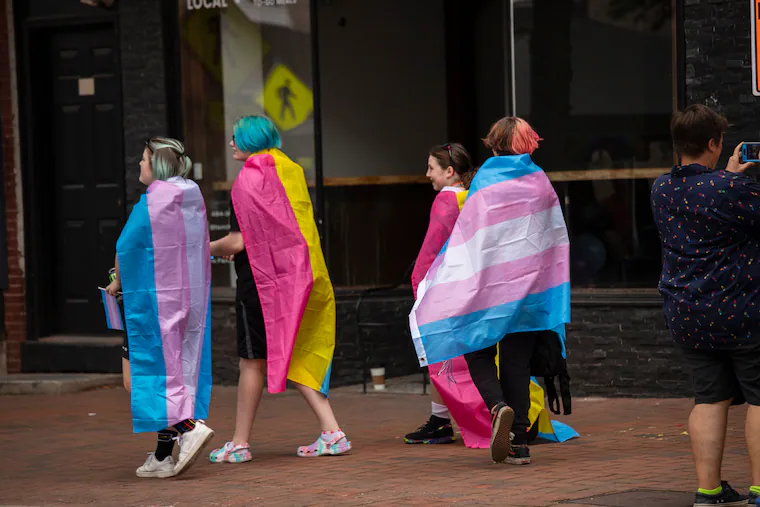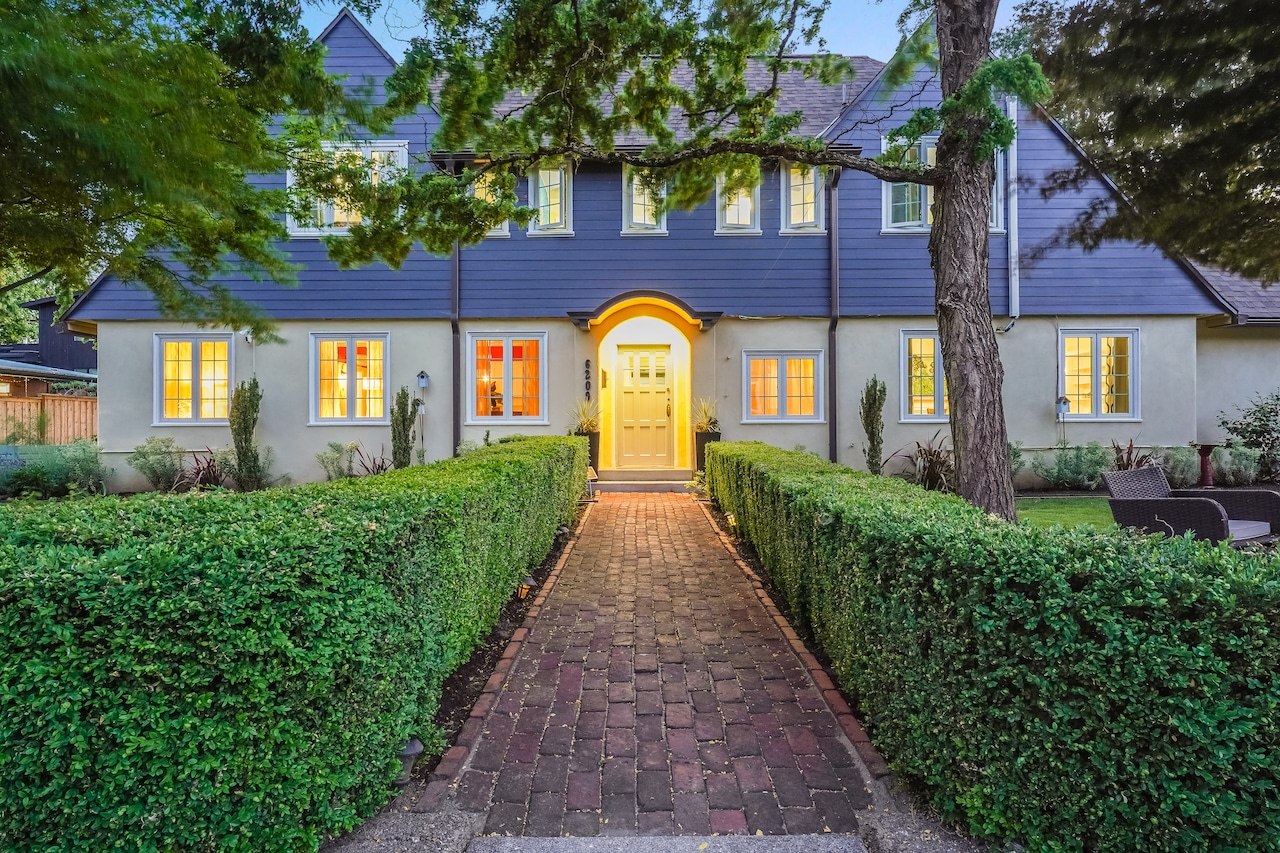
Three of Philadelphia’s four collar counties are rushing to protect LGBTQ residents from discrimination locally as President Donald Trump’s administration targets the community with both rhetoric and policies.
Montgomery, Delaware, and Chester Counties have moved over the course of a month to enact policies that would bar discrimination on the basis of sexual orientation and gender identity and establish boards that would hear discrimination complaints.
The local policies aim to bar discrimination in employment and housing among other areas. The structure of the commissions will vary by county and largely be composed of volunteers. Details in the counties are still being worked out, but the boards would be modeled off of the Pennsylvania Human Relations Commission and would review, adjudicate, and mediate discrimination claims.
They would protect people like Thomas DeLuca, a Springfield resident who told Delaware County Council members he was denied an apartment in his hometown by a landlord who told him, “Gays don’t pay.”
The landlord, DeLuca said, only knew his sexual orientation because he used a gendered pronoun in conversation to refer to the man he was dating at the time.
“That’s not something I should have to hide,” DeLuca said. “My whole life, my whole family are here. I should have the right to live where I want.”
The alleged discrimination against DeLuca occurred in 2022. But recent moves in three suburban Philadelphia counties come as advocates across the region, driven by new pressure as Trump rolls back federal equal opportunity protections for LGBTQ individuals, gear up to fight for more protections across Pennsylvania.
“The urgency is even greater, these are not just isolated incidents that it would be nice to have a law passed, these are vitally needed protections in the current political environment,” said Jason Landau Goodman, the chair of the Pennsylvania Youth Congress, which fights for LGBTQ rights.
Earlier this month, Montgomery County approved a human relations commission that county leaders vowed would bar discrimination based on sexual orientation and gender identity.
In the midst of a broader effort to enact a sweeping nondiscrimination ordinance, the Delaware County Council unanimously approved a resolution Wednesday establishing its human relations commission that would enforce that ordinance once enacted.
And next week, the Chester County Board of Commissioners is set to vote on a nondiscrimination ordinance and human relations commission that expands on the state’s protections to explicitly bar discrimination against LGBTQ residents.
If each county finishes the work they’ve started, nearly half of Pennsylvania’s population will live in communities that bar discrimination on the basis of gender identity and sexual orientation.
Years of advocacy
The moves represent breakthroughs that advocates have sought for more than a decade. And they’re setting the stage for a statewide fight planned in the coming months.
In recent years, advocates had been lulled into a false sense of security, said Kyle McIntyre, the organizer of Delco Pride. But, he said, when Trump took office and immediately began issuing executive orders targeting transgender Americans, advocates began discussing how they could push past what they saw as stagnation within Philadelphia’s collar counties.
The strategy, McIntyre said, was to encourage the counties to “race to see who could be the most progressive.”
Delco began publicly discussing plans to pass a nondiscrimination ordinance in August, within weeks, two more counties were bringing their own votes.
“By Delco moving so quickly on this, we knew that it would start a conversation, that people are going to be like, ‘Oh if Delco can do it, why can’t we?’” McIntyre said.
Officials in the collar counties said they’re acting now because of the intensity of the need in the current political moment, not any sense of competition.
Josh Maxwell, a Democrat who chairs the Chester County Board of Commissioners, pointed to pressure the Trump administration has put on the University of Pennsylvania Hospital and the Children’s Hospital of Philadelphia to roll back gender-affirming care and seek patient data.
“The leadership at the federal level is antagonistic and divisional and we don’t want that in Southeast Pa.,” Maxwell said. “It’s incredibly, incredibly important that these leaders are stepping up.”
Philadelphia has long had a nondiscrimination ordinance. With three of the suburban counties acting, it broadens protections for individuals who work and live in different counties in the region.
“In the times that we are living in right now, we need more protections for our residents,” said Monica Taylor, a Democrat who chairs the Delaware County Council.
Montgomery County’s Democratic commissioners said in a statement that the local resolution had been in the works “for some time.” Neil Makhija, a Democrat who chairs the board, said local governments were acting as the federal government refused to protect civil rights.
Still, Delaware and Montgomery Counties each need to take additional action to ensure their policies fully protect LGBTQ residents.
In Montgomery County, advocates have called for the bylaws of the new commission to specify the board will define sex discrimination to include gender identity and sexual orientation.
And in Delaware County, the board created Tuesday is powerless until council passes a non-discrimination ordinance — officials plan to approve the ordinance by the end of the year but said they moved forward with a resolution to begin the process while details are worked out.
The proposals have faced some pushback. Liz Piazza, a Republican running for Delaware County Council, told council members Tuesday that she worried the human relations commission would be used for political retribution. Other residents voiced concerns that it would limit speech and that the commission would be costly for an already cash-strapped county.
A poorly planned ordinance, Piazza argued, would lead to “thought policing, loss of faith in our judicial system, and the financial burning of training, support and resources it would place in our already inflated budget.”
Pushing for state action
Next month, LGBTQ advocates from across Pennsylvania will march in Harrisburg, seeking statewide protections from discrimination and the codification of marriage equality among other things.
They’re engaging in that campaign in a national environment that, McIntyre said, leaves many terrified especially given the discourse following the assassination of conservative activist Charlie Kirk allegedly by a suspect who, according to police, was in a romantic relationship with someone transitioning from male to female gender.
“A lot of us are thinking about the fact that we have a target on our backs right now. Even though it isn’t any of our fault, political violence has gone through the roof,” McIntyre said, noting that he has regularly dealt with threats organizing pride events.
“That’s what makes things like this HRC so important, because it diffuses it before it gets to that point,” McIntyre said. “It helps build dialogue and community relations instead of us sitting in silence until it blows over.”
The local ordinances and resolution, advocates say, will give vital protections to residents in Southeastern Pennsylvania.
“We’re going to be able to breathe a sigh of relief because there are currently no state laws, and really no federal laws that explicitly provide for legal protections,” said Carrie Stare, president of the board of the Chester County LGBT Equality Alliance.
And, Goodman, of the Pennsylvania Youth Congress, hopes they’ll prove to state lawmakers that Pennsylvanians want more action out of Harrisburg.
“It will continue to take these bolts of policy at the local level to send the signal that this is what the people want,” Goodman said.



